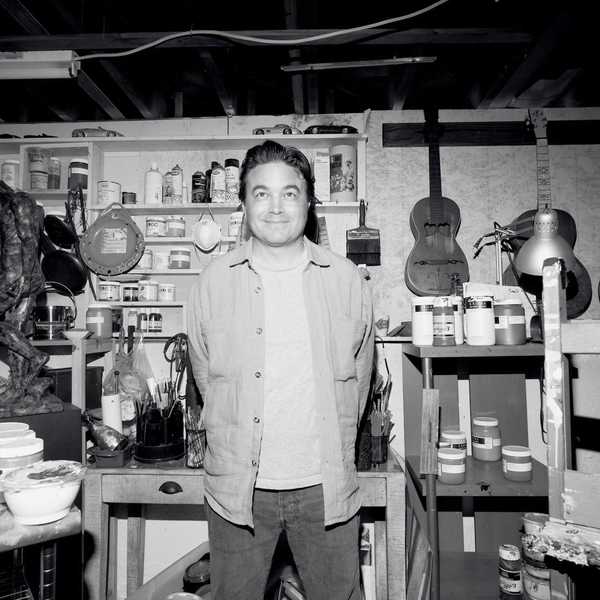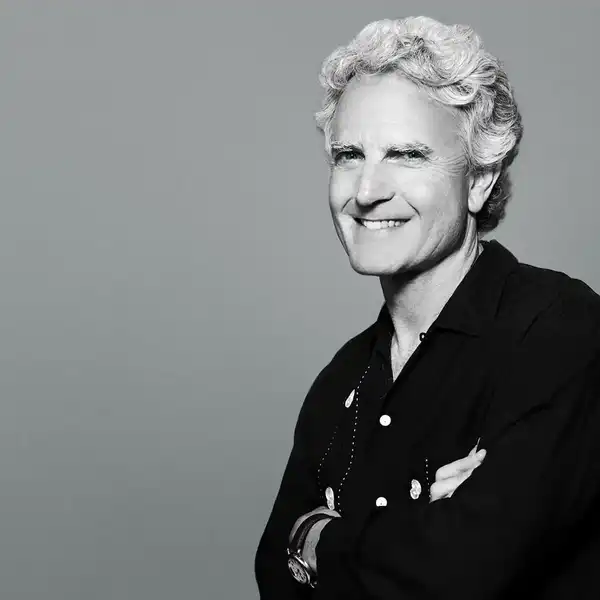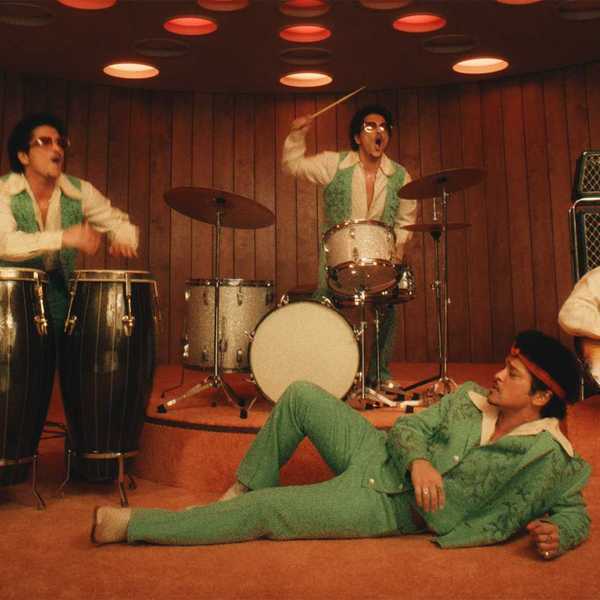Obituaries, July 7, 2022
This week we acknowledge the passing of journalist/broadcaster Patrick Watson, playwright James Rado, musicians Bruce Skerritt and Manny Charlton, and record producer Patrick Peter Adams.

By Kerry Doole
Bruce Skerritt, a Toronto-based musician originally from St. Kitts, died on July 1, age 70, from cancer.
St. Kitts media outlet ZIZ noted that "Bruce Skerritt’s legendary musical career spanned some 50-plus years, starting in St. Kitts and continuing in Canada and internationally. In St.Kitts, he is well known as the man behind such legendary Kittitian groups as the Caribbean Heat Waves. His Canadian bands, such as Phase II and Instant Jam, often accompanied such Caribbean stars as the Mighty Sparrow, Shadow, Duke and many others, such as Jamo from Mozambique. He was also a member of the Latin jazz group Coconut Groove, in Toronto.
In 2021, Caribbean Camera wrote that "Skerritt has been a mainstay on the music scene in Toronto for the last 40 years bringing his infectious form of jazz and Calypso jazz music to Toronto, to many parts of Canada, and around the world."
Last year, Skerritt celebrated his 70th birthday with a gala event at the Krave Banquet Hall in Scarborough. Guests included the High Commissioner of St Kitts and Nevis, Sherry Tross, and Brenda Foreman, Consul General for St. Kitts-Nevis in Toronto. Noted musicians paying tribute there included Gareth Burgess, Andy Phillips, Iain Green, Phillip Crichton, Eddie Bullen, Larnell Lewis, Lance Anderson, and Quisha Wint.
In 2019, Skerritt released the album Brimstone Hill Bop. He also worked as a manager of the famed music store Long & McQuade in Toronto. Sources: ZIZOnline, Bill King, Caribbean Camera
Patrick Watson, an influential Canadian journalist and producer and former CBC chair, died on July 4, age 92, of natural causes.
Canadian Press noted that "From the host’s chair to the boardroom, Patrick Watson left an indelible mark on Canadian news, shaping the country’s conception of its current events and history, say contemporaries and admirers.
"Over more than a half-century-long career, Watson brought bold ideas and time-tested values to his various roles — including TV host, producer, executive, actor and author — playing a pivotal role in such cultural institutions as This Hour Has Seven Days and Heritage Minutes.
News of his death brought a chorus of online tributes from his fellow broadcasters. On Facebook, veteran TVO anchor Steve Paikin (The Agenda) posted that "A broadcasting legend has died. Patrick Watson's show Witness to Yesterday in which he interviewed figures from our history got me hooked both on journalism and history. His This Hour Has Seven Days revolutionized current affairs TV in the 1960s. "
Born in Toronto, Watson started his broadcasting career as a teen actor on CBC Radio’s children's series The Kootenay Kid. After earning a master’s degree at the University of Toronto, Watson dropped out of his doctoral studies at the University of Michigan to work at CBC.
He became a household name soon after the 1964 debut of This Hour Has Seven Days, which he co-created with producer Douglas Leiterman and co-hosted with Laurier LaPierre. During its 50-episode run, the weekly news magazine show became a hit among audiences for its blend of hard-hitting interviews, documentary deep dives and irreverent satire.
Watson later hosted other CBC shows, including The Watson Report, from 1975 to 1981, and the business news show Venture, from 1985 to 1987. Other TV projects included Witness to Yesterday, where he interviewed actors portraying historical figures, and the ambitious documentary series The Struggle for Democracy. He was also part of the creative team that developed the Heritage Minutes, a series of 60-second TV spots on Canadian history.
From 1989 to 1994, Watson served as chairman of CBC, shepherding the public broadcaster through budget cuts and calls for privatization.
Noting Watson's passing, a CBC spokesperson stated that "From his start as a teen actor on CBC Radio's The Kootenay Kid to his storied career with CBC News and his time as Chair of the CBC/Radio-Canada Board of Directors, Patrick Watson's contribution to Canada's public broadcaster and his service to Canadians across a number of fields was far-reaching, made a difference and will not soon be forgotten. Both at the CBC and beyond, Watson's work as a broadcaster, producer, actor and author over five decades made him an icon of Canadian broadcasting and has left a legacy that will continue for decades to come. Our thoughts are with his family and friends."
Watson also published multiple novels, non-fiction books, and a stage play — 1983's The Book of Job, a one-man play in which he starred. As an actor, he appeared in the TV movies The Terry Fox Story (1983) and Countdown to Looking Glass (1984); the films Bethune (1977) and The Fourth Angel (2001) and the series Slings and Arrows (2003). He published an autobiography, This Hour Has Seven Decades, in 2004.
A man of many talents, Watson became an accomplished pilot, wind-surfer, water skier, scuba diver and magician; he had a lifelong love for the craft and was one of three founding members of Magicana, a Canadian not-for-profit organization dedicated to the study of magic as a performing art. Intriguingly, Magicana published books by and on a fellow Canadian broadcasting legend and authority on magic, Allan Slaight.
Watson was made an officer of the Order of Canada in 1981, and then promoted to a companion of the order in 2002. Sources: CP, CBC
International
Patrick Peter Owen Adams, an American music arranger and record producer who earned 32 gold and platinum records, died on June 22, age 72, of cancer.
He was known primarily for his production, songwriting and engineering work on the New York-based Salsoul Records, Prelude Records and major record labels as well as his associations with various recording artists such as Black Ivory, Inner Life, Jocelyn Brown, Loleatta Holloway, R. Kelly, Keith Sweat, Teddy Riley, Salt-N-Pepa, Leroy Burgess, and bands The Universal Robot Band, Logg, and Musique.
In addition, Adams worked with rap, hip-hop/R&B and dance/club acts such as Coolio, Cathy Dennis, Keith Sweat, Teddy Riley, R. Kelly, Eric B. & Rakim, Salt-N-Pepa, and Shades of Love. He owned and operated PAPMUS (Patrick Adams Productions Music) in New York City.[5]
The New York Times termed Adams "a master of New York’s Underground Disco Scene. He produced, arranged or engineered many of the era’s biggest nightclub hits, even if his records rarely got much play on the radio. Despite his low profile, he left his fingerprints everywhere." His fellow producer Nile Rodgers called him “a master at keeping butts on the dance floor.”
Sources: Wikipedia, New York Times
Manny Charlton, a founding guitarist of the Scottish hard rock band Nazareth and producer of Guns N’ Roses' early demos, has died, according to a post from his grandson. No cause of death was cited; he was 80.
He was Nazareth’s guitarist, producer and co-songwriter from the band’s formation until 1990, performing on the band’s most successful albums, notably 1973’s Razamanaz and 1975’s Hair of the Dog. The latter album went platinum in the U.S. and featured the group’s biggest hit, a dramatic cover of Love Hurts, originally made famous by the Everly Brothers, that reached the top 10 of the Billboard Hot 100. The group also scored a later, lesser hit single with 1980’s Holiday.
According to Variety, in 1986, Guns N’ Roses singer Axl Rose reportedly wanted “the guy who produced Nazareth’s Hair of the Dog" to produce the band’s debut full-length. Charlton ended up recording some 25 songs with the band at Los Angeles’ legendary Sound City studio — all of which have been bootlegged and some of which were officially released as B-sides or bonus tracks — but bowed out of producing the album due to commitments with Nazareth. The album, which was ultimately recorded with producer Mike Clink, sold an estimated 30 million copies globally and became the biggest-selling debut album of all time. GNR recorded Hair of the Dog for their 1993 all-covers album The Spaghetti Incident?
While he was born in Spain, Charlton’s family emigrated to Scotland when he was a child, settling in Dunfermline. He played with several local bands in the 1960s, including the Shadettes who changed their name to Nazareth in 1968, inspired by the lyric from the Band’s classic song The Weight.
The group gained momentum in 1971 on a tour opening for Deep Purple — the band’s bassist, Roger Glover, would produce several early Nazareth albums — but Charlton took the helm for Hair of the Dog and remained in that role until 1983. Nazareth toured and recorded heavily throughout the ‘70s and ‘80s, releasing some 17 studio albums during his tenure with the band.
He released nearly as many solo albums after leaving the group in 1990, including 2014’s Hellacious, which featured guest appearances from original GNR drummer Steven Adler, Def Leppard/Dio guitarist Vivian Campbell, and Vanilla Fudge’s Tim Bogert. Source: Variety
James Rado (James Alexander Radomski), an American actor, writer and lyricist, died on June 21, age 90.
Rado is best known for co-writing the famed 1960s hippie rock musical Hair. The Guardian notes that "Hair (1967), the first theatrical rock musical – billed at the time as “the American Tribal Love-Rock Musical” – had its roots in both the vibrant, radical off-Broadway theatre of the mid-1960s and the emotions, experience and political anger of the writers and actors involved."
The lyrics and libretto were the work of Rado and his colleague and sometime lover Gerome Ragni, who had participated in that off-Broadway ideological maelstrom with Joe Chaikin’s Open Theatre and Ellen Stewart’s La Mama.
Rado was already writing songs and acting in New York when, in 1964, he met Ragni as a fellow off-Broadway cast member in the British hit protest revue (about capital punishment) from Oxford University, Hang Down Your Head and Die, devised by David Wright and staged by Braham Murray.
This was not a success, Rado and Ragni got on with Hair immediately afterwards as they hunkered down in their apartment in Hoboken, New Jersey. According to The Guardian, "In truth, the creative spark for Hair was a meeting with a quiet Canadian, Galt MacDermot, a serious and renowned jazz musician, composer and church organist. Once he took hold of the scribbled lyrics and storyline, he produced a rock/funk score of astonishing beauty, poignancy and anthemic power."
Backed by Joseph Papp, Hair was chosen as the opening show in his new Public Theater in the East Village in NYC, and it opened on 17 October 1967. With Rado restored to the cast as Claude, the show moved to the Biltmore Theatre in April 1968, where it was a Broadway sensation and ran for 1,750 performances. It also had a five-year run on London's West End.
The Toronto production of Hair was also a long-running smash hit, and it had a huge impact on the city’s theatre scene. One of the original cast members of that production was Lynda Squires, the lead singer of the rock band Reign Ghost.
Now Lynda Davies, she recalls to FYI that “The show ran for almost 13 months - a record that stood for 20 years. Hair was responsible for kickstarting music theatre in Toronto. Workshops sprang up around the city thereby reviving small theatres and opening new ones, many of them still in place today.”
Davies notes that Ragno took a close interest in the Toronto run. “The cast began rehearsing in a warehouse on Adelaide Street and early on Jimmy (James) Rado and Gerry (Gerome) Ragni heard that we were a particularly impressive, young cast so they came up from New York to see and hear us rehearse. They stayed. They took over the Toronto production and rehearsals for the next few months and even wrote a new, additional song for our production - So Sing The Children On The Avenue. Through that long rehearsal period Jimmy and Gerry lived with us - the Mississauga Tribe as we became known - on two floors of the Royal York Hotel.”
Davies recalls that “Jimmy was the quieter one of the two but kept in touch with us cast members for all these 50 intervening years, particularly after the early death of Gerry at just 48 in 1991. In 2007, the last time I saw Jimmy, he came into town for the Hair revival production at CanStage, to which the original cast members were all invited.”
Hair had a major impact on Davies personally too. “I met my husband, record producer and music publisher Frank Davies, because of Hair. Three of us cast members, Tobi Lark, Tabby Johnson, and myself auditioned for his Daffodil label during the Hair run in 1970 at the Hawk's Nest, where he had his office with then-partner Ronnie Hawkins. Two years later Frank and I married. We celebrated our 50th-anniversary last month!”
Much of Rado’s professional life was devoted to keeping the flame alive in other productions of Hair. Rado and his brother Ted created an off-Broadway Hair sequel, The Rainbow Radio Roadshow, in 1972 and, later, American Soldier. He reunited with Ragni in 1974 on Sun (Audio Movie), an environmental musical and on the equally unsuccessful Jack Sound and his Dog Star, Blowing his Final Trumpet on the Day of Doom. Ragni died in 1991, and MacDermot passed in 2018.
Sources: The Guardian, AP, Lynda Davies

















